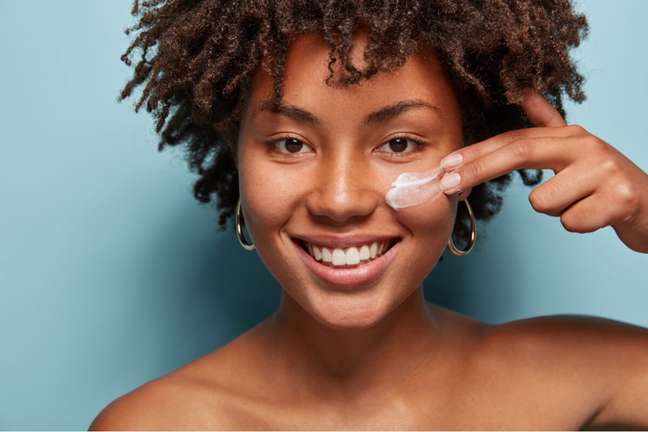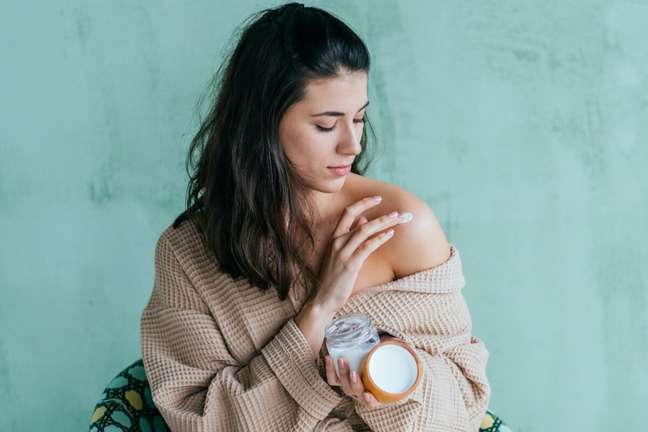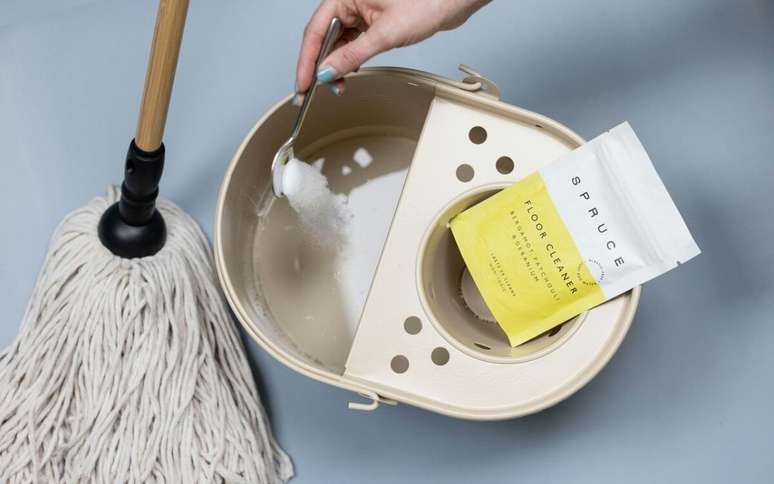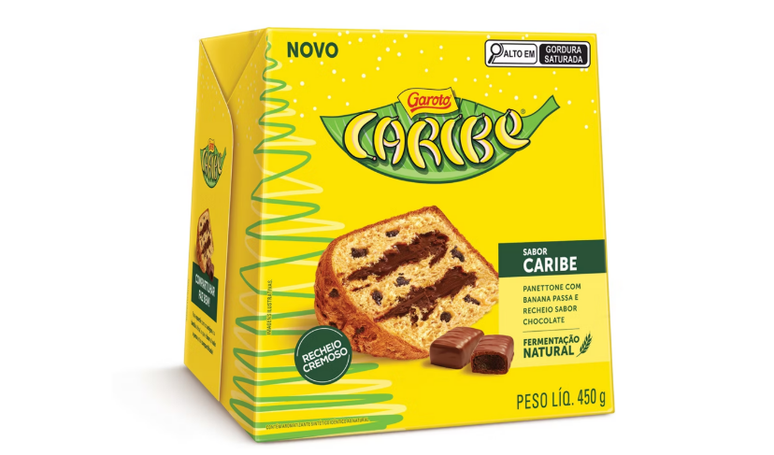The dermatologist explains what attitudes you should adopt to keep your skin healthy
While it seems like skin gets drier on cold days, dry weather isn’t the only culprit. “When temperatures drop during the colder months, the humidity in the air also decreases and this leaves the skin drier, which is further exacerbated by some habits such as hot showers, lack of a grooming routine and poor diet,” said the dermatologist. Monica Aribi.

Difference between hydrated and oily skin
The doctor also explains that the belief that oily skin does not need or cannot be hydrated is a myth. This is because greasiness is different from hydration. “While the former relates to excess sebum, the latter relates to the amount of water in the skin,” differentiates the doctor.
In addition, the dermatologist explains that acne treatments, for example, dry the skin a lot, which highlights the need for hydration in all skin types. Therefore, the expert lists 7 tips to keep skin protected on cold days. Watch!
1. Apply moisturizer and gel
Creams and gels provide immediate relief and prevent transepidermal water loss. “In hydration by occlusion, the active ingredients present in the cosmetic are able to favor a reduction in the evaporation of water in the stratum corneum and maintain the humidity of the deeper layers, thanks to the presence of oils. It is best suited for dry skin, “says the dermatologist.
In the composition of these cosmetics, amino acids, urea and hyaluronic acid are found, which are considered biological moisturizers. “The skins that benefit most from this type of action are normal and dry. For this reason it is very important that drier skins bet on richer and more nutritious creams, with omega in association with classic ingredients such as hyaluronic acid. Oily skin. they should use products that provide prolonged hydration and shine control, usually in oil-free versions, “explains the specialist.
Two. pay attention to the bathroom
It can also be pleasant, but a long hot bath tends to leave the even drier skin. “The shower should be short and at the right temperature, more in between. Take advantage of the minutes after the shower, when the skin is even more receptive, and apply a light coat of body oil, followed by a cream or lotion for the body. they help the moisturizer to penetrate, “explains the dermatologist.
3. Use a face and hair mask
A moisturizing mask can serve as a weekly ritual and will help you relax. “Masks are useful because they are occlusive, which means they forcefully introduce moisturizing ingredients into the skin. The same goes for your hair,” says the dermatologist.

4. Care for all areas of the body
There is an easy fix for rough hands, knees, elbows and feet in the winter. “The big secret is, after the exfoliation performed during the bathapply a cream rich in urea, oils such as avocado, macadamia, almond, passion fruit or grape, and butters such as shea, cupuaçu or mango, “explains the professional.
According to the dermatologist, in the case of the feet, cotton socks can help to enhance the action of the active ingredients. “Wear cotton socks for thirty minutes to increase the absorption of active ingredients and enhance the action of local hydration, regeneration and nutrition,” he says. In the hands, the glove can be an option to do the occlusion and improve the action of the assets.
5. Use a lip balm
If your lip is dry, no longer ironic! The best thing to do is to use a lip balm. “Saliva has a more acidic pH and this leads to constant dermatitis that makes dryness even worse. There is that immediate feeling that the region has been moistened, but microcracks, burning and local redness occur soon after,” he says. the dermatologist.
The doctor still recommends using vitamin-based moisturizers And, pro-vitamin B5, from shea and cocoa butters. “Therefore, they have to be formulations rich in vitamins and antioxidants that help in repair, in the sense of avoiding inflammation,” he says.
6. Drink water and eat healthy foods
According to Dr. Monica Aribi. Consuming water-rich fruits and vegetables can help hydrate the skin as they provide hydration to every cell in the body. “Internal hydration with adequate water intake and natural, healthy foods hydrates from the inside out. Supplements can also be recommended by doctors,” says the practitioner.
As the dermatologist explains, most nutricosmetics they have formulas that can help moisturize the skin. “Components such as vitamin E, marine collagen, lycopene and beta-carotene, can help both in hydration and in strengthening the skin barrier. Omega 3s, for example, promote hydration from within,” says the doctor.
7. Enhance your bedroom air
Along with dry air, the heat from the heater is a major factor in decreasing hydration. “To solve this problem, put an air humidifier in your room. Your skin will thank you in the morning,” concludes dermatologist Mônica Aribi.
By Maria Paola Amoroso
Source: Terra
Benjamin Smith is a fashion journalist and author at Gossipify, known for his coverage of the latest fashion trends and industry insights. He writes about clothing, shoes, accessories, and runway shows, providing in-depth analysis and unique perspectives. He’s respected for his ability to spot emerging designers and trends, and for providing practical fashion advice to readers.







